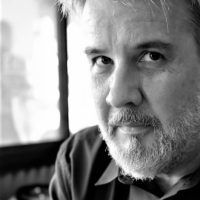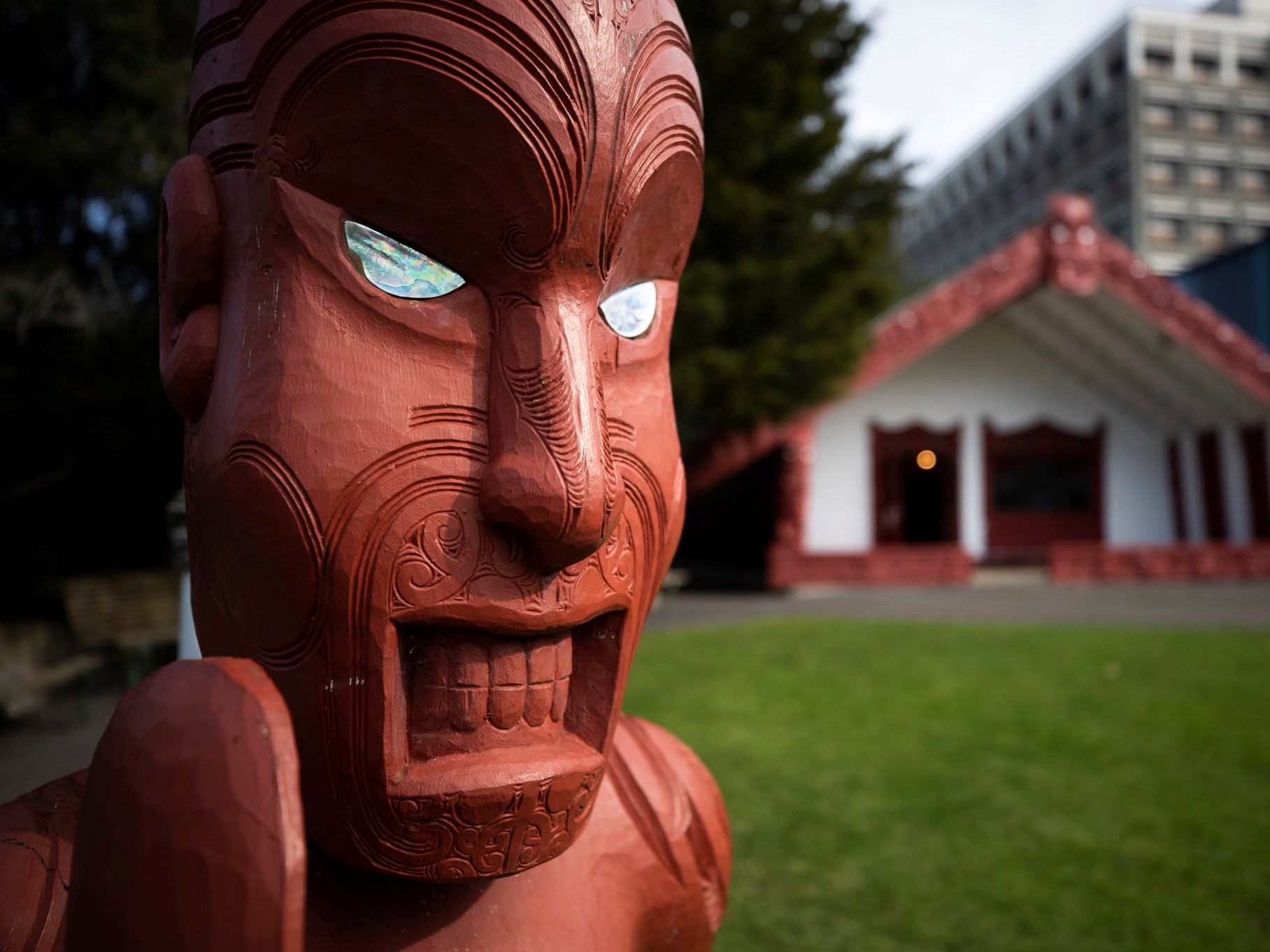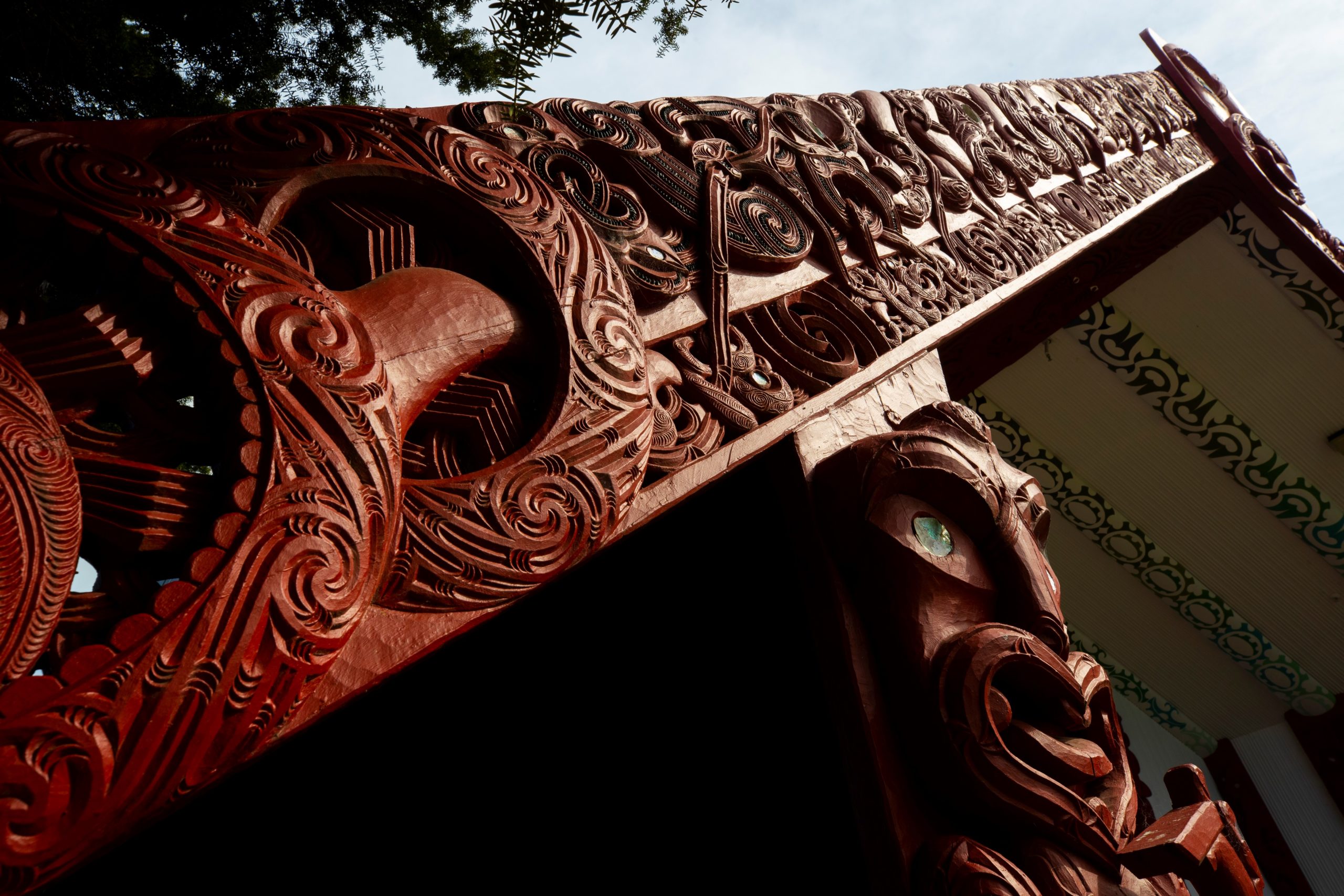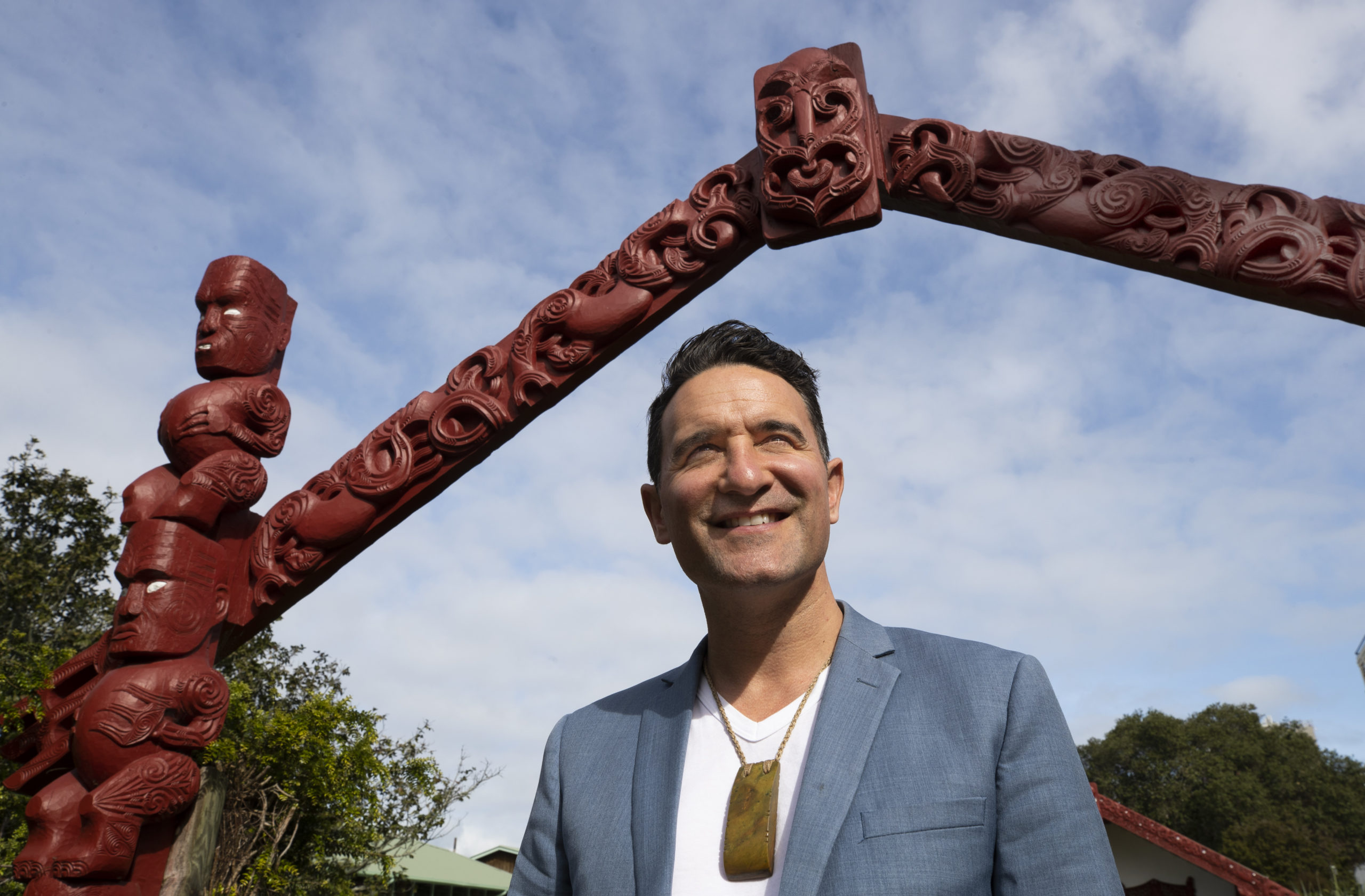
People of Microsoft Asia
Walking in two worlds
A Microsoft executive in New Zealand draws on his Māori heritage to help shape a diverse and inclusive future
At just 40, Dan Te Whenua Walker holds two master’s degrees, serves on multiple boards and charitable trusts, and is now a rising star within Microsoft.
His resume on LinkedIn reads like a 21st-century success story. But let’s go back in time. In some ways, Walker’s personal journey began 600 years ago with a legendary ocean odyssey by his forebear, Turi Arikinui.
Turi captained Aotea, a waka hourua (voyaging canoe) that sailed thousands of kilometers west across the vast Pacific guided by the stars, winds, and currents. He led a group of Māori people from a tiny island in Polynesia to a place they called Aotearoa (Land of the Long White Cloud) – four centuries before British colonizers showed up and renamed it New Zealand.
Turi’s people settled in Taranaki, a beautiful corner of the country’s North Island, where a spectacular snowcapped volcano rises above a lush landscape and ancient rainforests. Their descendants have been the Tangata Whenua (the people of the land) ever since.
“I know every one of Turi’s descendants, all the way down to me,” Walker says. For him, Taranaki is a spiritual home, an ancestral seat, and a personal compass. “It is a place that helps tell me who I am and where I am going.”
But it wasn’t always so. Walker’s Scots-Irish immigrant father and Māori mother raised him in Christchurch, a city hundreds of kilometers away on New Zealand’s South Island – and a cultural world away from his true roots.
“The narrative of Māori was really negative as I grew up in the 1980s and 1990s,” he recalls. “The media often highlighted stories about how many of our people were in jail, or about those who beat their children, our domestic violence, unemployment, and poverty – all of the negative statistics.
“For these reasons, I didn’t want to be Māori when I was growing up. There were and are also positive stories, but they weren’t highlighted. I don’t blame the media. They were just feeding what a majority wanted to see. It is a similar challenge faced by all indigenous cultures around the world.”
As a teen, Walker felt like an outsider who didn’t belong in either world of his parents. “I struggled with an identity crisis throughout my childhood. If you suppress your identity for so long, it can come out in negative ways. It certainly did with me. I got in trouble a lot and dropped out of high school without any qualifications. That was in 1997.”
An aimless year followed, but soon two positive forces came together for Walker – work and culture.
Encouraged by his mother and father and others in his family, he set out on a journey of self-discovery by learning about his Māori side.
His maternal grandmother, Te Rau o Te Huia Taranaki (affectionately known as Nana Chick), introduced him to a rich tribal heritage that he had never known. She took him along to one of his family’s marae (traditional meeting house), and his traditional education began. It was an epiphany.
“I started understanding what it is to be Māori. Nana Chick helped me connect to that side of me. And for the first time in my life, I felt proud to be Māori. I found there was a beautiful side to me that I had never known about before. It wasn’t taught in schools. It wasn’t taught in my childhood at all. But it was there, and I went on a journey of understanding that.”
With newfound self-confidence, he returned to Christchurch and landed his first real fulltime job with a consumer electronics retail chain.
“I started at the bottom and moved into management pretty quickly. I found that I loved dealing with people. I loved working with and leading teams,” he recalls. “I became enamored by the concept of how business can help a person develop and grow, and through that, help your whole community.”
The next few years saw a burst of career advancement with senior roles in several tech companies. “I was no longer a failure. I was successful. I learned about business, how it works, and how it can be used for good. I saw changes in me.”
He went back to night school and got a diploma. Still working and soon to be married, he took up distance education, eventually gaining an MBA from the University of Auckland in 2011. Another master’s degree in Advanced Leadership Practice from Massey University followed last year.
All through this time, he also immersed himself in Māori ways. He learned the language fluently after eight years of study.
He still regularly visits his family’s marae in Taranaki. “I have learned about my connection to that whenua (land). It goes back 42 generations,” he says. “I know my place and my purpose. My people became a community that I love. They became a bigger purpose for my being.”
His traditional connections run deep and are complex. He is a proud member of five iwi (tribal groups): Ngāti Ruanui, Ngā Ruahinerangi, Ngāti Kahungunu ki Wairoa, Tūhourangi, and Maniapoto.
All require responsibility and support. Walker now serves on several tribal boards and trusts that not only promote business growth and financial stability for the community but also environmental and land custodianship, as well as educational and career opportunities for its young people. He is also deputy chair of New Zealand Māori Tourism.
Walker sees the reclamation of traditional language skills and cultural practices as key to Māori wellbeing, and the ultimate good of New Zealand as a nation.
“We are working not just for today, but also for the future of our children’s children and generations after that,” the father of three says.
Te reo Māori (the Māori language) is now widely taught in schools, but it was banned for more than a century under a policy of racial assimilation.
“It wasn’t taught to me growing up. Nana Chick lived through this time and was punished strongly for speaking her native language. She was fluent, but she never spoke it to me as a child,” he says.
Its suppression ended only in 1987 following a landmark legal fight by a group of Māori leaders, including Walker’s uncle, Dr. Huirangi Waikerepū.
The case saw te reo Māori recognized as one of three official national languages alongside English and New Zealand sign language.
Walker joined Microsoft New Zealand last year as Cloud Infrastructure and Applications Solutions Lead. Since then, he has actively applied his Māori values and knowledge to the business and its culture.
“Being Māori is my superpower,” he explains. “I find that as I grow in my cultural strength and wellbeing, I become more authentic about who I am. As that authenticity grows, I understand how I can add value.”
He has created introductory courses on Māori culture and issues for his colleagues. Recruits to the company are given a traditional Pōwhiri (welcome ceremony) as part of their first-day onboarding.
Looking ahead, he wants to drive understanding and internal cultural change within the company. He is now working with other indigenous employees in North and South America who face similar challenges and have similar aims. Together they have just launched Microsoft’s first Indigenous Employee Resource Group (ERG), which Walker co-chairs. “We are helping to change Microsoft from the inside. That is my sense of purpose here at Microsoft. It’s an amazing experience.”
He also has supported and promoted diversity and inclusion initiatives by teams within Microsoft, such as this year’s addition of te reo Māori to a list of more than 60 languages on Microsoft Translator app and the insertion of Māori features, language, and cultural references into Minecraft in schools.
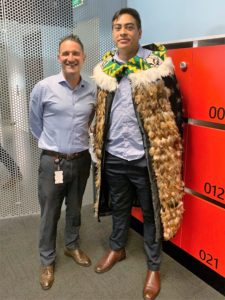
“Microsoft wants to drive Māori and Pasifika (Polynesian) initiatives,” he says. “I have never been in a company like this before.”
He has even bigger plans for mentoring and recruiting, which he hopes will help close the digital gap for Māori people. While they make up about 25% of New Zealand’s population, they and Pasifika people represent just 2% of workers in the country’s fast-growing IT sector. Instead, too many remain in low-paid, low-skilled jobs.
“We don’t have a lot of role models who can lead the way,” he explains. “We need to focus on getting our children educated in the right ways to change that. We need to invest in our people.”
Greater participation by Māori people in the technology sector would deliver broad benefits for all New Zealanders, he says.
“Yes, Māori need to embrace tech. But tech also needs Māori. What I mean by that is technology was born as a science around facts and figures. Whereas for Māori and other indigenous cultures, our values are at the core of the framework for how we operate,” he says.
“The danger is that new technologies, such as artificial intelligence (AI), are susceptible to social bias, often against minorities. AI can be a force for good, but we need to base it on values that put the environment and our people in the right space, so that AI doesn’t steamroll us.”
As Walker outlines his vision for the future, he again looks back to the past – this time to the example set by his great grandfather, Hori Taranaki.
After serving New Zealand and the British Empire in World War I, he donated land for the building of a tribal school. Hori wanted his descendants to have the power to keep their culture and language while thriving and growing strong in a fast-changing modern age.
“He saw the need for us to walk in two worlds. It is the same challenge today,” Walker says. “My Māori culture has taught me that my ancestors are always with me. My deep wish is that he, and all of my ancestors, are proud of me and that I am enacting their dreams.”
MAIN IMAGE: Dan Te Whenua Walk visits Waipapa Marae, or Māori meeting house, on the campus of the University of Auckland. Credit: Brett Phibbs / PhibbsVisuals





